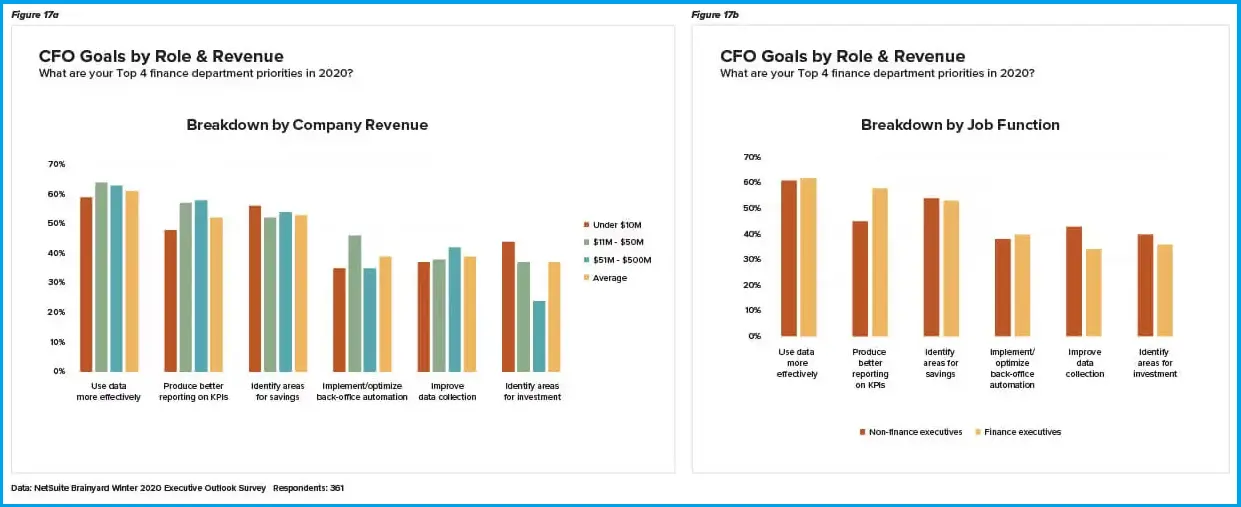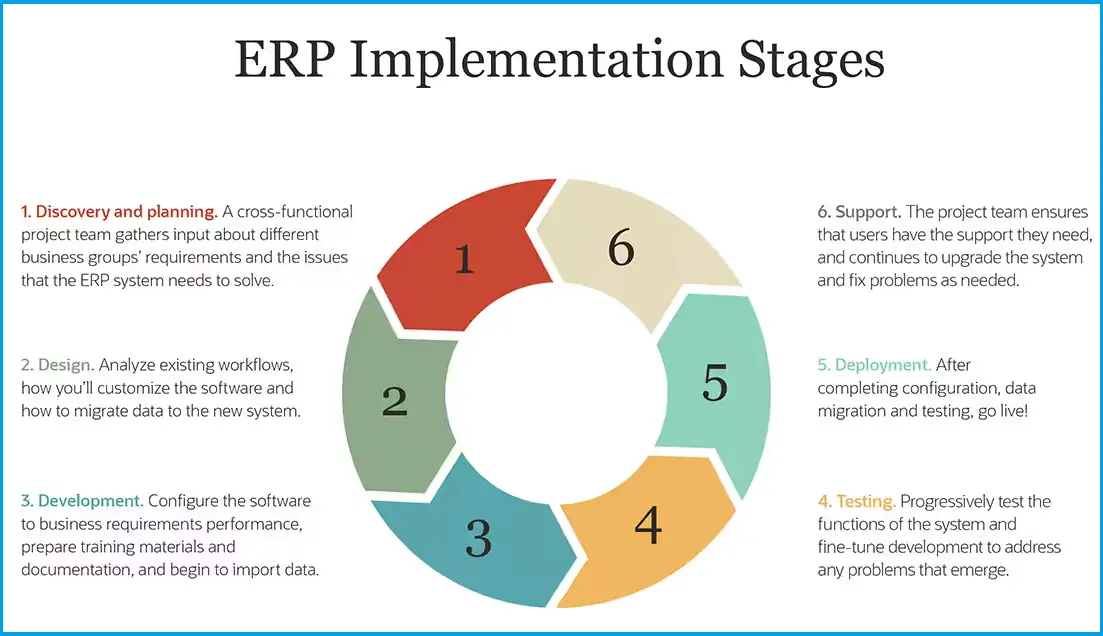Are you a small enterprise and are tired of managing your business processes manually with spreadsheets? Yes, then! have you tried implementing the ERP software for small businesses? The software helps small businesses integrate both their financial task and customer information into one system. It ultimately helps small businesses to grow into large enterprises by improving communication across the departments. Moreover, it optimizes the business processes by providing easy visibility to all business operations. If you are a small enterprise owner and are looking for the best ERP for small business, then this blog post is for you. Read the complete blog till the end to know more about the solution, including its features, advantages, and implementation method.
Table of Contents
ToggleWhat is an ERP Solution?
Enterprise Resource Planning, commonly known as ERP, is a software that helps small businesses manage their business operations from accounting to customer relationship management. The software provides one platform for businesses to have an integrated view of all their operations, such as financial accounting, inventory management, sales and marketing, production planning, and more. The ERP small business software comes in different sizes and complexities depending upon the requirements of your business. As this software merges all your business-critical operations into one platform, you need not switch applications to get an overview of your business.
The small business ERP can be categorized into tiers based on the complexity and size of the organization they serve. The different tiers include:
- TIER 1 ERP Systems
- TIER 1 Government ERP Systems
- TIER 2 ERP Systems
- TIER 2 Government ERP Systems
- TIER 3 ERP Systems
- TIER 4 ERP Systems
Based on the technology, the ERP Small Business software can be categorized into two groups.
- ERP as a Service
- ERP as a SaaS Cloud
Also Read: Time and Expense Management Software
Amazing Features of ERP software for small business
The application serves as a central hub for different business operations such as HR, finance, IT, and more. Understanding the various functionalities helps in picking the right solution for your business. Below, we have mentioned the common functionalities of ERP Solutions.
1. Integration
The ERP software must be easily integrated with the other software with the goal of sharing data with the systems. These applications are widely preferred due to their ability to communicate with the other software in the same ecosystem. Integration is the most beneficial feature of ERP software as it brings together operational, business, and financial data into one place.
2. Automation
A robust ERP Solution automates the different operations of the business. It eliminates the repeated manual data entry tasks of many business operations, such as invoicing, payroll, reporting, order processing, and more.
3. Accounting
The accounting features of the software have the ability to store, track, and analyze financial data such as accounts payable, general ledger, accounts receivables, forecasting, and more.
4. Data Analytics
The small businesses ERP software collects, tracks, and analyzes data of your various business operations. Through these data, the software generates insightful reports with real-time information that further helps in making well-informed data-driven decisions.
5. Customer Relationship Management
All the customer information, such as order history, purchase orders, and contacts, can be easily accessible.
ERP for small business: A Helping Hand
The right ERP for small businesses will fit your business to cater to various needs. The software will depend on your business size, industry, needs, and budget. The right solution will improve the business informational flow and help in making the decision-making.
With the perfect ERP solution for small businesses, you can facilitate and accommodate the growth of your company. The best ERP small businesses will help you in achieving the following:
1. Empowers fact-based Decisions
As it provides fact-based deep insights into the business, the SMBs can make fact-based decisions. The fact-based reports enhance decision-making.
2. Improves Inter division Communication
Miscommunication among the different departments is the biggest problem that leads to wrong results. Since the ERP solution is the only source of communication, there is no point of miscommunication.
3. Promotes accountability
All the data of various departments is stored in one place, and anyone who needs it can access the data. The open sharing of the data promotes accountability and prevents inter-departmental discrepancies.
4. Reduce Inventory Cost
The inventory management system alone can not handle the inventory of your business properly unless it is integrated with the rest of your organization. An ERP solution integrates your inventory with the rest of your organization so that you can track your inventory properly. It reduces the inventory tracking cost.
5. Improves Production Efficiency
An ERP Solution automates various time-consuming manual tasks that can lead to errors. As these tedious manual tasks are eliminated, the efficiency and accuracy of your business improves.
6. Lowers Operational Costs
Since the solution integrates various operational tasks of your business, there is no need to purchase multiple software for different tasks. It reduces the operational cost and helps you in achieving your business goals.
+44-800-810-1881
Key Steps in Implementing the ERP for Small Business
Implementing the right ERP solution can be a transformative step for small businesses. Without having the right knowledge, implementing the ERP can be a hectic and challenging task. Follow the below-mentioned points to implement the ERP software to leverage its full advantage and attain sustainable growth.
1. Define Your Needs
The first step is to clearly define your business needs and goals and to identify the key stakeholders who will play a crucial role in implementing the solution. It helps you implement the solution in a proper manner.
2. Analyze the Software
There are plenty of software available in the market. You must research the market, compare different ERP solutions, and pick the right one for your business. Also, while picking the software, you must properly evaluate the different functions of the software.
3. Check the Implementation Plan
As the implementation plan of the software is the detailed outline of the implementation steps that are necessary to start the application, you must check it. The clear implementation plan includes requirements gathering, testing, and validation, installation, support. A well-structured implementation plan ensures that the process remains on track.
4. Employment Training
Training is necessary to use the application effectively. It also ensures that the employees become well-versed with the new software, which leads to a smoother transaction.
5. Testing and Support
Having a responsive support team will help you prevent the disruptions that arise in your daily operations. You must constantly monitor the performance of the solution. This will not only prevent the disturbances but also provide the area of improvement.
Also Read: Download and Install Sage 50 Accounting Software
How do you Pick the best ERP for small business?
Getting the best ERP for small business that is tailored according to your business needs is possible; however, it involves time and cost. With the thousands of ERP small business software, picking the right one is a little confusing task. However, consider the below-mentioned points to pick the right solution for your business.
1. Company Size
Some ERP solutions are best for the large enterprise, while others are perfect for the small ones. Henceforth, you must pick the right solution for businesses depending on the size of your organization.
2. Departmental needs
For the success of your ERP journey, it is crucial to know the different departmental needs of your business. To find out the ERP needs, you can think over the pain points such as analytics and data, financial reporting, mobile accessibility, user experience, and more.
3. End users
Although the ERP is a business solution rather than a technology initiative, it is important to know how well the solution integrates with your business infrastructure. The employees of your organization must be comfortable with using the software. Also, the end users must be comfortable with using the different functionalities.
4. Implementing Process
Picking the right ERP for small businesses is not the half battle won. While picking the right solution, you must not overlook the implementation process. It involves planning, testing, training, data migration, and a go-live process. You must pick the software that gives complete implementation support and guidance.
5. Plan your Future
The ultimate goal of small businesses is to grow their business. Henceforth, while picking the solution for your business, you must think about the future. Is the solution scalable and can easily fulfill the current as well as future needs of your business? You must pick the solution that caters to current as well as future needs.
6. Price
Last but not least, pricing is one of the crucial factors that must be taken into account. Every business has different budgeting. Also, different small business ERP solutions offer various pricing depending upon the functionalities. Henceforth, you must pick the solution that best fits into your business budget.
Final Thoughts
An ERP solution provides 360-degree visibility into different operations so that the problems can be easily identified and the employees can make well-informed decisions. It streamlines and automates various tasks of your business. However, picking the right ERP for small businesses can be a tedious task, especially for businesses with outdated functions to fulfill their current need. Implementing the right solution helps you adapt to the future. Hopefully, this blog clarifies all doubts regarding ERP small businesses. If you have further queries, you can get in touch with us immediately.
Frequently Ask Questions (FAQs)
The cost of ERP software varies from $ 25,000 to $ 1,00,000, depending upon the size, functionalities, type and industry of your business. The average cost of ERP software may vary.
In a broader aspect, the ERP solution can solve any and all problems of your business. To be precise, the software resolves the five major problems of your business, namely, siloed data, lack of collaboration, mismanaged budgets, inventory problems, and inefficient workflows.
Typically, for small to medium-scale businesses, it usually takes three to nine months to implement the software. For large businesses, it will take up to 18 months, and for multinational businesses, it will last for several years.
Yes, our experts will help you in implementing the solution for your business. They will assist you in implementation, understanding the various functionalities, and resolving the discrepancies, if any. All you need is to get in touch with them.
Yes, irrespective of your business size, there is an ERP solution for each business. It helps businesses streamline their task and reduces operational costs. By utilizing the software, you can stay ahead of your competitors as it provides data-driven insights.





